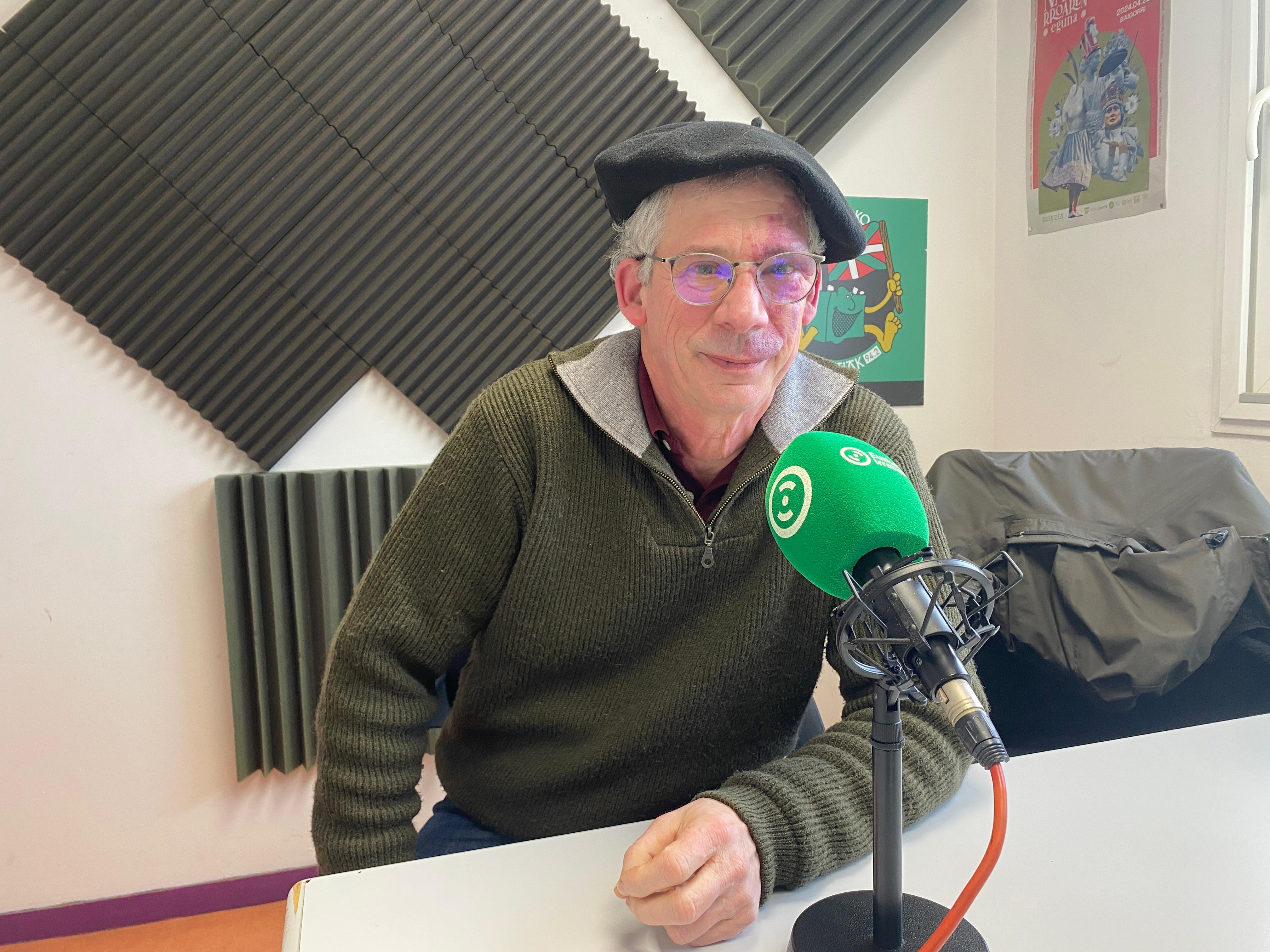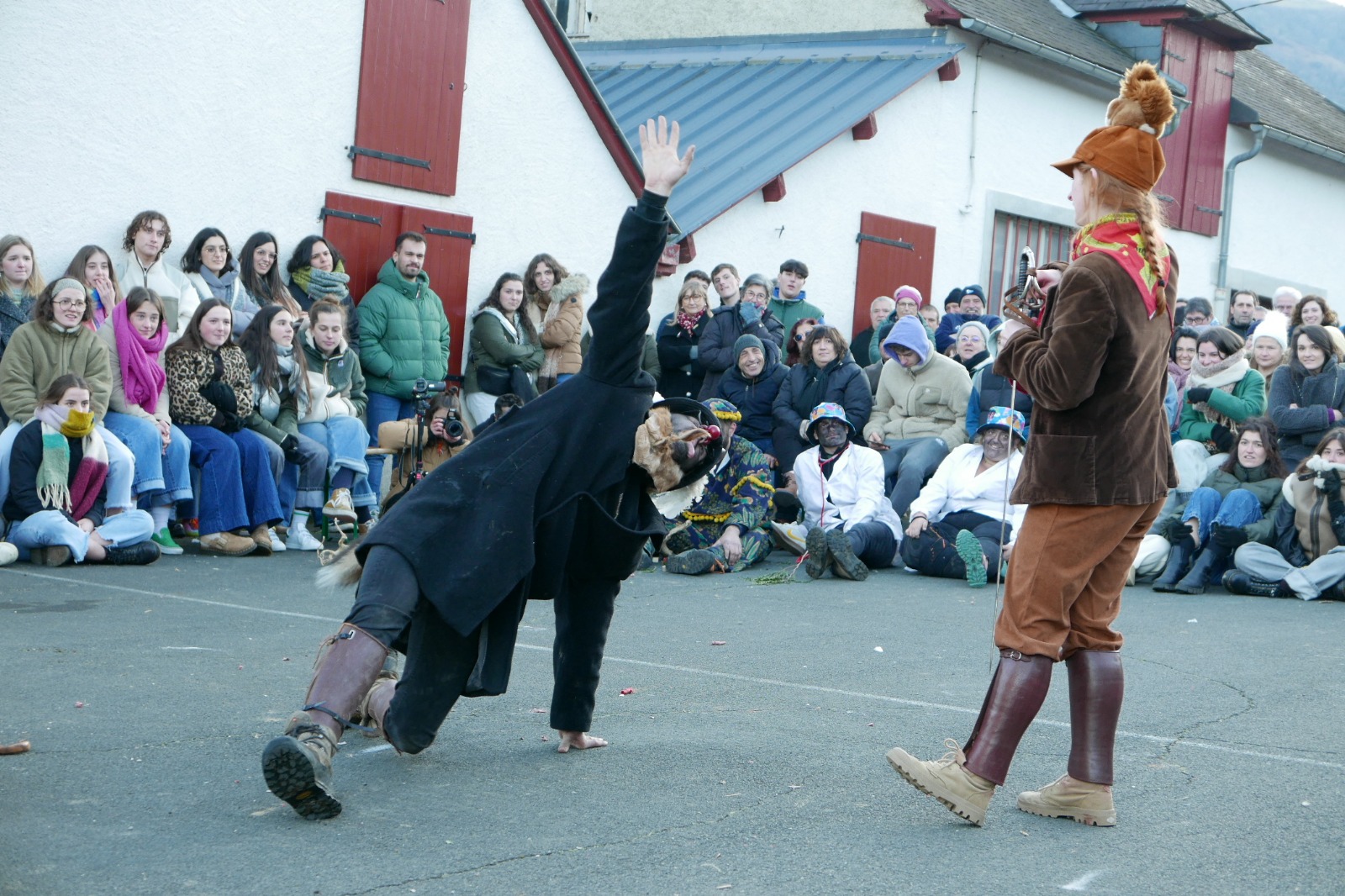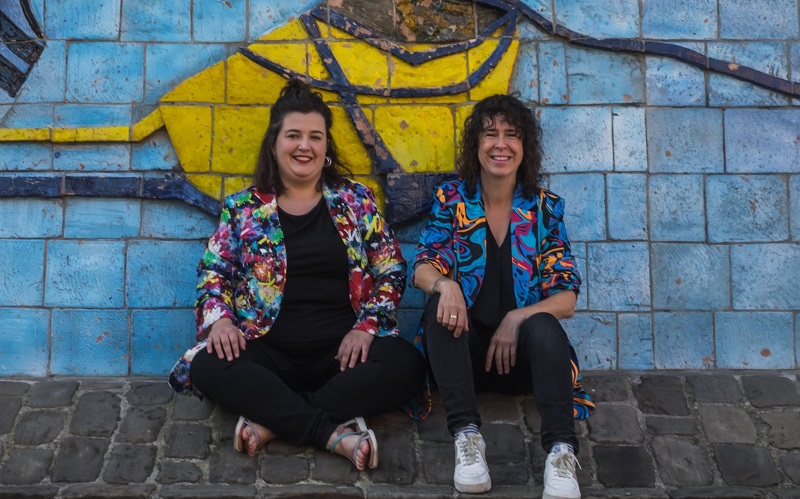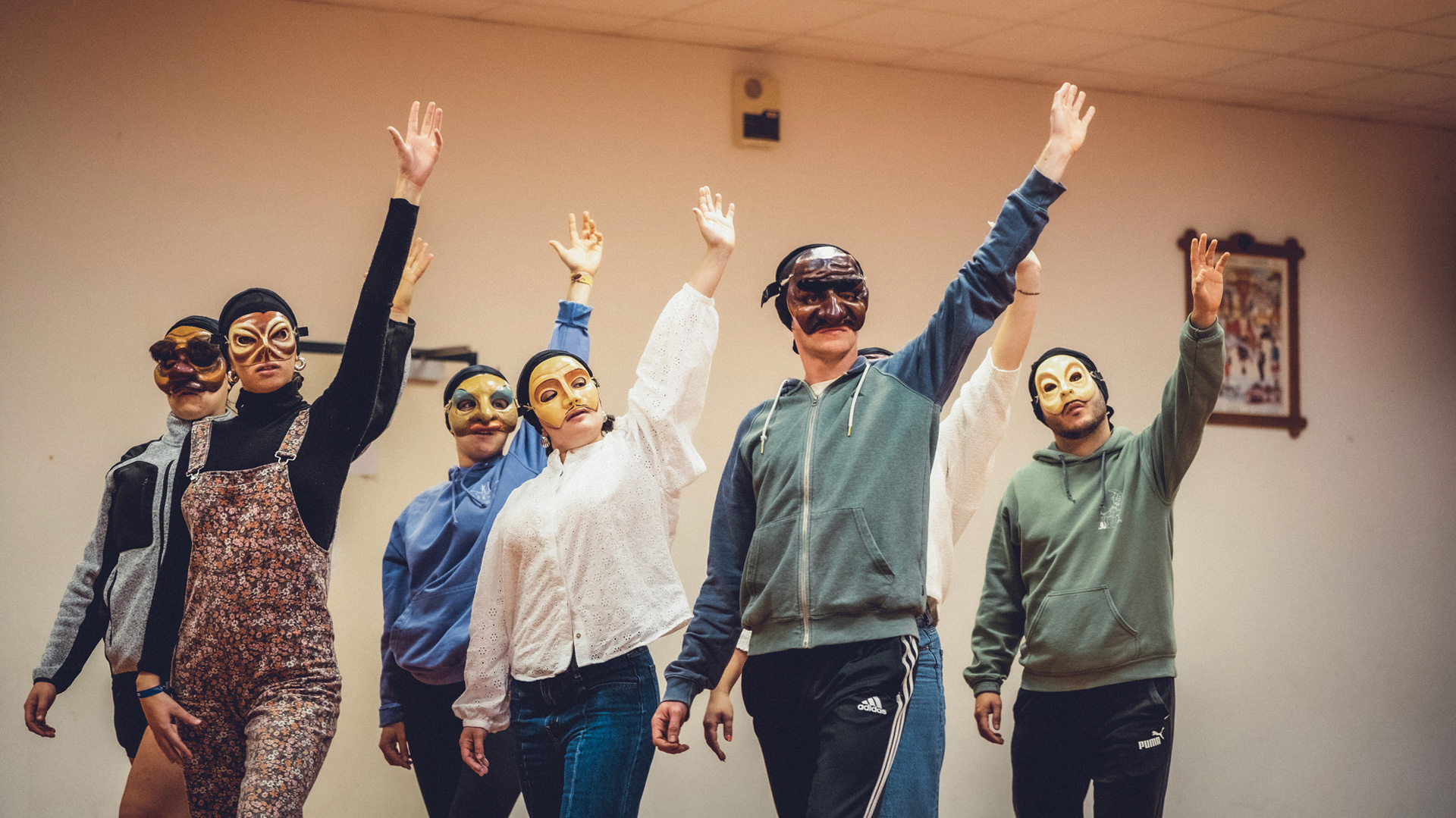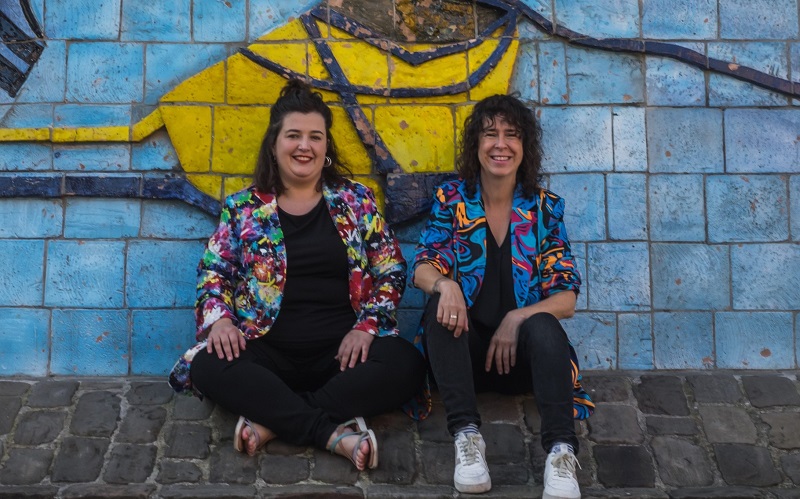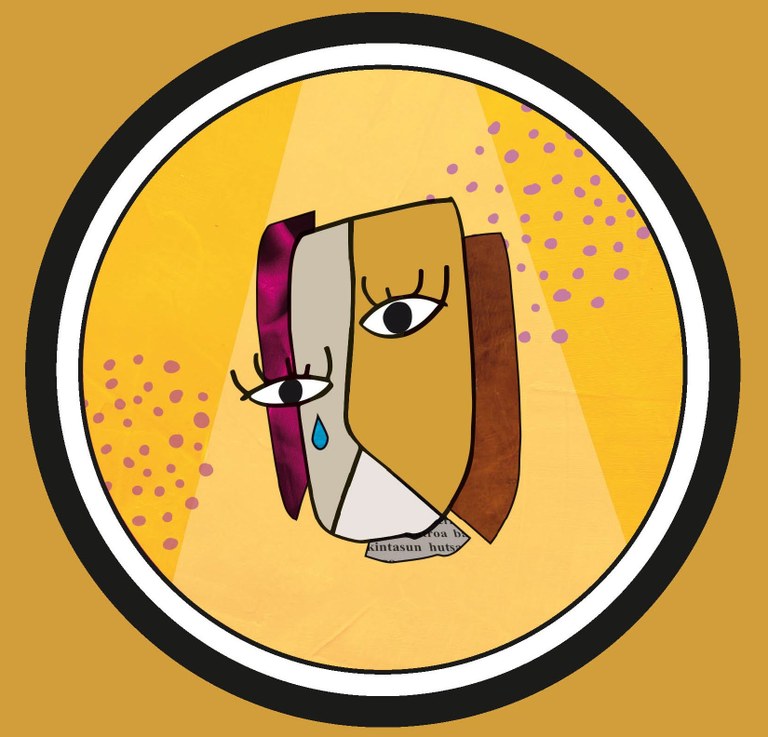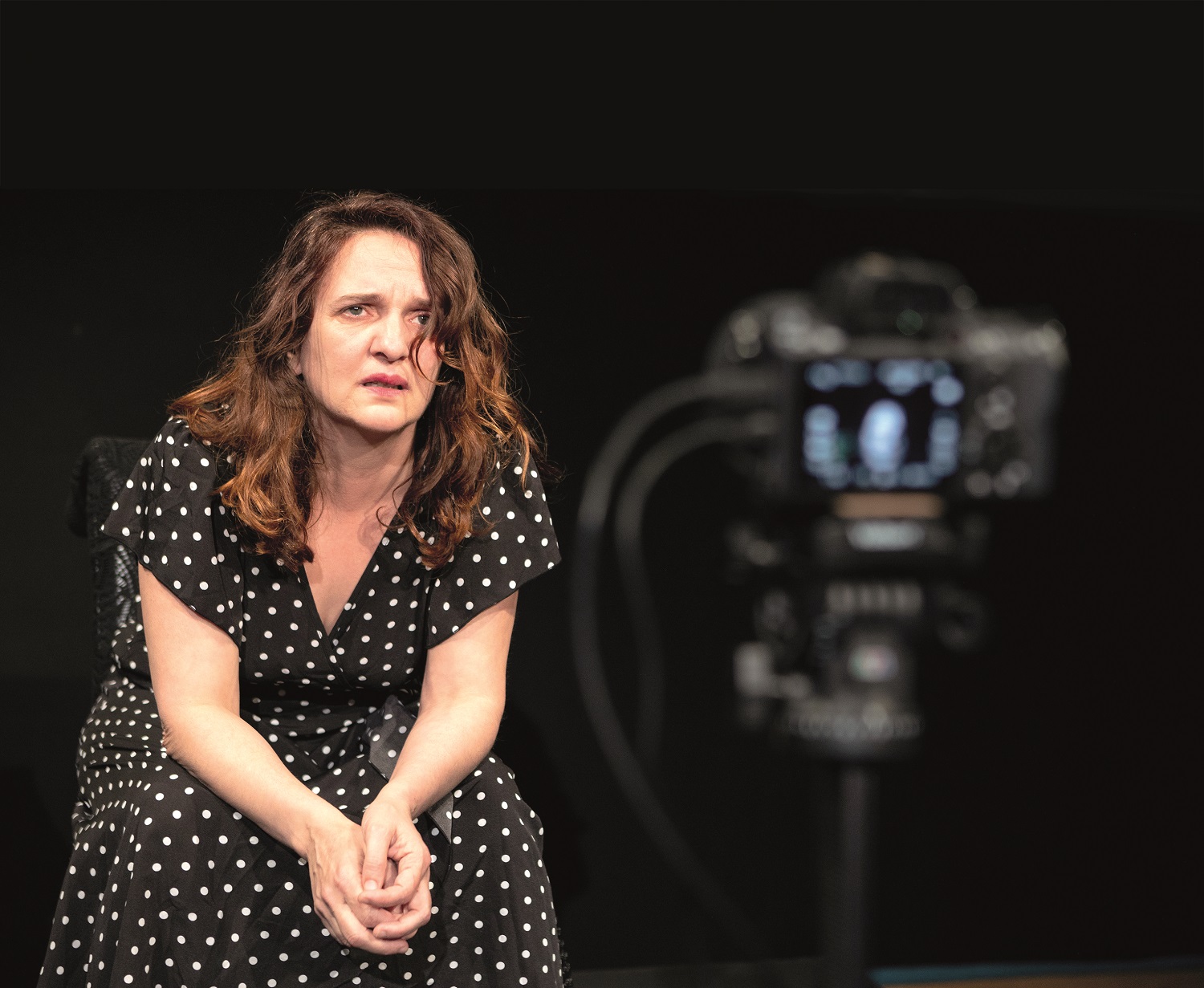You don't have to be young to be lost
- Mikel Ibarguren, Edurne Azkarate and Intza Alkain are part of the Formol Laboratory. The Album play on its generation has recently been released at the Azpeitia Theatre Meetings and have already announced eleven other performances. They've done an exercise of honesty, removing layers to get to the core, to make her account of it, to investigate how our being wants and to say it as they want.
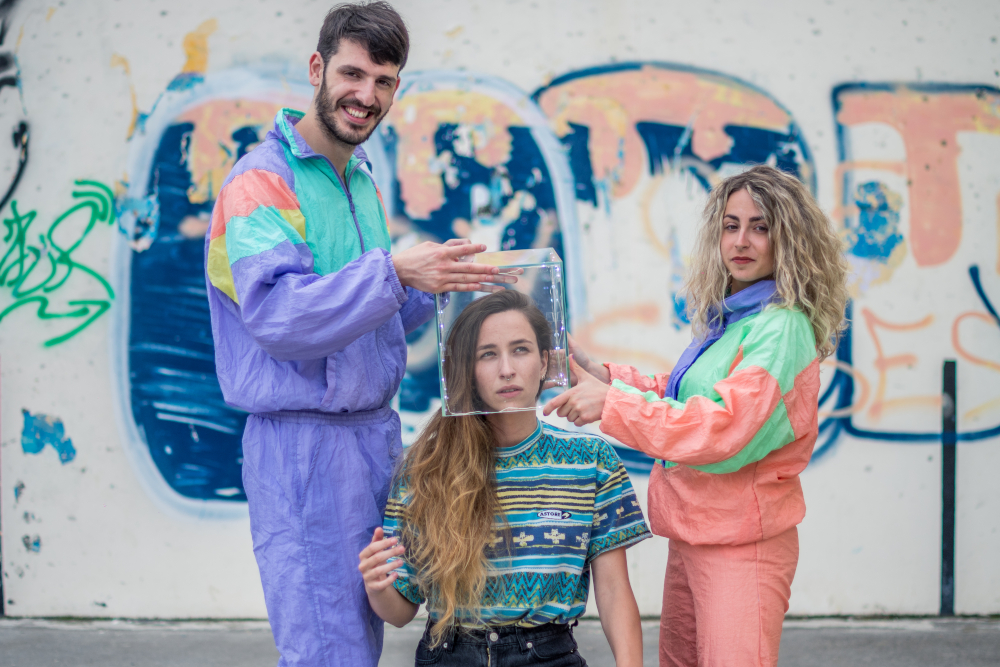
The Basque Theatre Drama Laboratory ADEL in Aulesti is an annual event for theatre enthusiasts. A good pot to meet people and get things going, according to Edurne Azkarate Sobrino (Oion, 1993). In the 2019 encounters, Mikel Ibarguren Egibar (Zestoa, 1995) was queuing to enter the theater, saying they had to do something. Ibarguren and Azkarate were known beforehand, collaborated in the Käffka theatre play of the Kamikaz Collective. Intza Alkain Ibarguren (Lasarte-Oria, 1995) was known at ADEL. She was given a proposal to be part of it, writing to the email address that was provided during the meetings. All three of them wanted to create something. Azkarate, for example, wanted to work as a director. Even if you're looking forward and looking forward, it's not easy to find the time and the way to get together. They found themselves pulling Aulesti's excuse.
They met for the first time in the Tabakalera de Donostia and the first meetings were the assemblies. In order for the Assembly to decide what they wanted to do, how they wanted to do so. They were starting from scratch, and they had all the roads open. Aesthetics and codes had consensus, but they lacked the subject. We talk a lot about young people, who now also use the millennial label, which meant what they found in their reflections about their generation. Three precarious young people want to tell their story from their voice in the first play. However, they do not want to be spokespeople for the whole generation. That's why they're talking about the personal, the personal.
They had previously decided on the title of what was going to be the first work of the group. There were many possibilities: Millennials, Averia, MDMA, Formol... When it was time to formalize the association, Formol was the most voted. However, it makes sense. They did not want to put the last name “producer” or “theater company”, hence the Formol Laboratory.
As soon as they met, they began to work. It's also an opportunity to say something for the first time, to say what they want and the way they want. “The need for micro and vomiting has been noted.” The creation process has been useful for this purpose. They have gone deeper, following the will and the desire to investigate. The need for production of a company has not existed in Formol. They're also working on other jobs at once, and it's a platform to do what they want, without pressure. As for production, although they do not need to maintain this industrial machinery, they want to professionalise what they are doing. They've created a network around them, because one of their goals is to give and pay people a job and relate to the artists they like.
The same year the Formol
Tiempo y Espacio Laboratory was created, the Euskera and Youth Service of the City of Vitoria-Gasteiz and the Young Creators Scholarship of Vitoria-Gasteiz, organized by the Provincial Council of Álava. Thus emerged the short piece Maqueta (2020), antecedent of the work Album. The Square Meter was developed in collaboration with the Creation Laboratory.
In April 2020 they had to present the Mockup. However, the Covid-19 pandemic and the measures to address it left all these intentions. This suspension served to bring forward other works: the role of the association, the submission of calls for grants, a review of texts...
And it's that among the three of them they're doing everything, even with help and with support. They've started from scratch, and it's a great job. On the one hand, the artistic part, and on the other, the meetings, the dialogue with the programmers, with the Treasury and Administration, the dressing room, the producer's work, reports. “The generation accounts for between 15% and 20% of the total process, the rest of the management. We have learned a lot.”
In 2020 they were able to rehearse for a week thanks to the Eztena festival, and in the same year 2021 the work Album was released in June. This served them to set a deadline for their performance and contrast with the public what they were doing, to get an answer. In parallel, the ZUbi project, created to help the new creators of the Basque theatre, has allowed several stays. Several tour performances that have just been launched will be carried out within the project.
The process has been highly valued by Azkarate, Alkain and Ibarguren, and their dedication in time and space has allowed them to reach the rooms with a consolidated methodology and a very stable poetics. It was a transversal road that brought out from the process what the work was going to be, because at first it had no text, no scenography, nothing else. The power to take time has served them to freely train intuition to capture what the work needed. In fact, they have explained that the conventional generation processes are different: “Today everything is frantic and valued as: they give you money and you have to justify, produce, produce, produce. Sometimes the results take a smell of production and it’s a pity.”
Generational album In the laboratory
it has been tried to make the opposite way: to remove and remove the layers to reach the medulla. Album creation has been an exercise of honesty that has asked the actors and the director for personal work. It is Azkarate’s first time as director and says that the situation has been excellent, because it has not been something to be commissioned and has not had to seek work as director without having experience in it. It was a good place to work: “I knew it would be a place of trust.”
Among the three of them, they've made a lot of decisions, because they've completed the dramaturgy since it happened on the scene. Azkarate went home with what happened in the trials, and he brought him back working to feed the actors, like the little ones. He says that he had some transversal lines and goals, and that they had a disciplined working methodology, that he didn't admit fixed schedules. They have relied heavily on improvisation, but above all on the importance that Azkarate wanted to give to what happened when improvisation ended: “Intza and Mikel were lost on stage and mutual needs arose to decide what to do.” In this situation they find the truth they were looking for. The concepts that have been interpretatively interesting to them have been “being lost” and “truth.”
However, the sense of loss is not sweet. That is what Ibarguren says: “When you’re lost on the stage and you’re the one who turns all the alarms on you: do something, tell us something.”
They also see life as they see it, we are forced to be active and productive, we have little chance of being lost, or simply being. The main exercise they've done has been to remove all of this and stay 30 minutes lost until something real comes out. To start building until you find the zero point. “We hope that this honesty, which we have created, will be maintained.” The result is based on the fact that it is not a representative work, but a representative one. The situation is the one that commands, that presence. There are no characters who have to carry the action in a narrative. “It’s risky, but it’s understood by responding to what many programmers have asked us. It’s not super-commercial, because it’s not very orthodox to those of us in the theater, but it can be for others,” says Azkarate. In this regard, they have also endeavoured to break some of the traditional codes of the Basque theatre.
One of their aspirations is that the young public also draws to the theaters, a public is emerging. However, they stress that they do not do theatre for young people: “Many think we do youth theater because we are young, but the 45-year-olds have our same imaginary and our imaginary is not run by a 13-14-year-old. We're not doing theater for teenagers, our theater is adult theater. Will you please let us in your league? To be profoundly programmed? Have a space for our voice to be heard?”
At the Eztena festival, they remember what a spectator said. “I’m not your generation, but I’ve learned because I live in this world, I have nephews and children, and you don’t have to be young to be lost.”
In addition to the preparation of the album, the Formol Laboratory has carried out other works during the last year. The institutes have offered mediations to work around the generation of indigenous young people, and the UPV has taught a course, among others.
So what does
Album talk about then? At the end of the interview they say that they may not have said anything that would draw people to the theater and what a possible conventional synopsis of the play would look like: “There are two characters on top of the table, one with a helmet and the other with a backpack, in a jail, in a freckman. There are many conflicts and they cannot leave, the only way is to survive.” This is a study on young generations, carried out at last by young people, which has deepened in the most superficial times.
As in a album, or as in a photo album, the play advances by pieces. It breaks with some typical elements of theater. One of them is that the conflict does not occur between the characters, but between them and the one outside the chest. The relationship between the characters is not what is expected, as perhaps the characters themselves are not what is expected either. There's a play about prejudice, also about yourself. What do the two ostriches do inside a fish? Before I start to say wrong, see.
Duela hemeretzi urte berpiztu zen libertimenduen usadioa Donibane Garazin. Antton Lukuk abiatu zuen mugimendu hori, eta bi hamarkadetan, Ipar Euskal Herriko herri desberdinetara ez ezik, Hegoaldera ere hedatu da.
Arizona
Actors: Justin Garfield and Jon Plazaola...
WHEN: January 26th.
IN WHICH: The New Culture Center. In the square.
-------------------------------------------
The couple Margaret (Aitziber Garmendia) and George (Jon Plazaola) leave Idaho to guard the border between... [+]
AMAK
Company: Txalo teatroa.
Created by:Elena Díaz.
Address: Begoña Bilbao.
Actors: Finally, Ibon Gaztañazpi will account for the details of Intza Alkain, Tania Fornieles, Oihana Maritorena and IRAITZ Lizarraga.
When: 10 January.
Where: Auditorio Itsas Etxea... [+]
Basabürüako ibar eskuineko gazteek lehen maskarada arrakastatsua eman dute igandean, Lakarrin.
By:
Mirari Martiarena and Idoia Torrealdai.
When: 6 December.
Where: In the San Agustín cultural center of Durango.
------------------------------------------------------
The fourth wall breaks and interferes directly, standing and fearless. ZtandaP is a way of counting... [+]
By:
Mirari Martiarena and Idoia Torrealdai.
When: 6 December.
Where: In the San Agustín cultural center of Durango.
-------------------------------------------------
The fourth wall breaks and interferes directly, standing and fearless. ZtandaP is a way of counting from... [+]
We're in chaos. That has been said to us by the French media, which Parliament has brought down the government on 4 December. The fear that political, institutional, social, economic chaos will rage us all in the horde of hell comes to our veins. What comedy we're going to play... [+]
Fight and metamorphosis of a woman
By: Eneko Sagardoy and Vito Rogado.
WHEN: 1 December.
WHERE: Serantes Room of Santurtzi.
-----------------------------------------------------------
Immediately after proposing the plan, the person who decided to buy the tickets online... [+]











